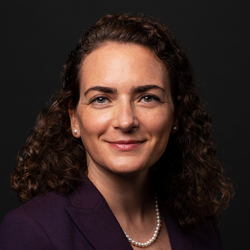
- This event has passed.
IEOR Seminar Series: Simge Kucukyavuz (PhD ’04 IEOR), Northwestern University
November 28, 2022 @ 3:30 pm – 4:30 pm
IEOR seminars occur on Mondays throughout the fall semester in room 3108 of Etcheverry Hall. Seminars feature leading-edge research from experts in industrial engineering and operations research who come from local, national, and international institutions. Seminars are open to students, faculty, and the public.
Title: Generalized Submodular Optimization
Abstract: Submodularity is a common property of a class of set functions that exhibit diminishing returns or economies of scale. For example, in sensor placement problems, the more sensors we place, the less additional information we obtain. Submodularity has proved to be a powerful concept in integer programming and combinatorial optimization. This concept has given rise to rich theoretical results and efficient solution methods for a broad array of problems, including set covers, graph cuts, and matroids. The classical submodular set function models the effects of selecting certain items from a single ground set. Thus, this class of combinatorial optimization problems can be modeled using binary variables to indicate whether an item is chosen. However, increasingly, many problem contexts require the utility functions to allow multiple copies of each item to be selected from different types of ground sets. This calls for generalizations of submodularity that require general integer and continuous variables or multi-set functions. We refer to such optimization problems as generalized submodular optimization and present our recent results on their mixed-integer programming formulations. We demonstrate our proposed approach on variants of sensor placement problems.
This is joint work with Kim Yu.
Bio: Simge Küçükyavuz is a Professor in the Industrial Engineering and Management Sciences Department at Northwestern University. She is an expert in mixed-integer, large-scale, and stochastic optimization. Her methodologies have applications in complex computational problems across numerous domains, including social networks, computing and energy infrastructure, statistical learning, and logistics. Her research has been supported by multiple grants from the National Science Foundation (NSF) and the Office of Naval Research (ONR). She is the recipient of the NSF CAREER Award and a co-winner of the INFORMS Computing Society (ICS) Prize. She is the past chair of ICS and serves on the editorial boards of Mathematics of Operations Research, Mathematical Programming, SIAM Journal on Optimization, and MOS-SIAM Optimization Book Series. She received her Ph.D. in Industrial Engineering and Operations Research from the University of California, Berkeley.
